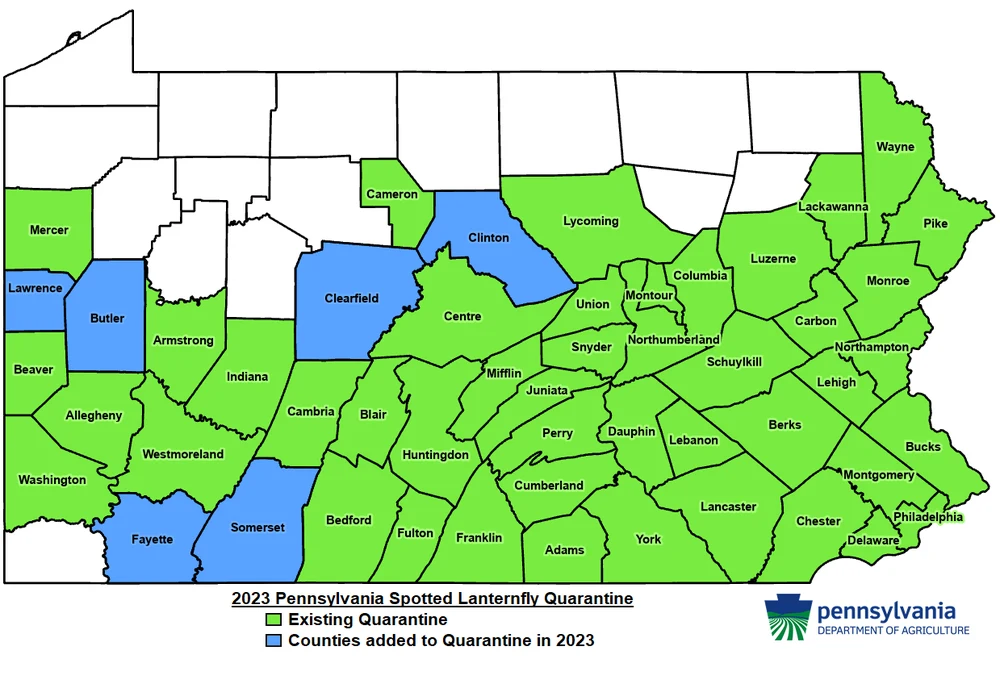Posted: May 10, 2023

The spotted lanternfly has been confirmed in 51 of PAʼs 67 counties.
Spotted lanternfly (SLF), now found in 51 counties in Pennsylvania, continues to be a serious threat. This invasive pest has a healthy appetite for our plants, and it can be a significant nuisance, affecting the quality of life and enjoyment of the outdoors. If not contained, spotted lanternfly potentially could drain Pennsylvania’s economy of at least $324 million annually, according to a study carried out by economists at Penn State.
The spotted lanternfly uses its piercing-sucking mouthpart to feed on sap from over 70 different plant species. It has a strong preference for economically important plants including grapevines, maple trees, black walnut, birch, willow, and other trees. The feeding damage significantly stresses the plants which can lead to decreased health and potentially death.
As SLF feeds, the insect excretes honeydew (a sugary substance) which can attract bees, wasps, and other insects. The honeydew also builds up and promotes the growth for sooty mold (fungi), which can cover the plant, forest understories, patio furniture, cars, and anything else found below SLF feeding.
The map above shows the 51 counties where SLF is found, including the six counties added so far in 2023. All 51 counties are under a state-imposed quarantine. The quarantine is in place to stop the movement of SLF to new areas within or out of the current quarantine zone and to slow its spread within the quarantine. The quarantine affects vehicles and other conveyances, plants, wood, stone products, and outdoor household items. In addition to Pennsylvania, SLF is also found in New Jersey, New York, Ohio, Connecticut, Maryland, Delaware, Virginia, and West Virginia.
Do your part to slow the spread and find out more at: agriculture.pa.gov/Plants_Land_Water/ PlantIndustry/Entomology/ spotted_lanternfly.
Excerpts from PA Department of Agriculture and Penn State Extension publications.
James C. Finley Center for Private Forests
Address
416 Forest Resources BuildingUniversity Park, PA 16802
- Email PrivateForests@psu.edu
- Office 814-863-0401
- Fax 814-865-6275
James C. Finley Center for Private Forests
Address
416 Forest Resources BuildingUniversity Park, PA 16802
- Email PrivateForests@psu.edu
- Office 814-863-0401
- Fax 814-865-6275

